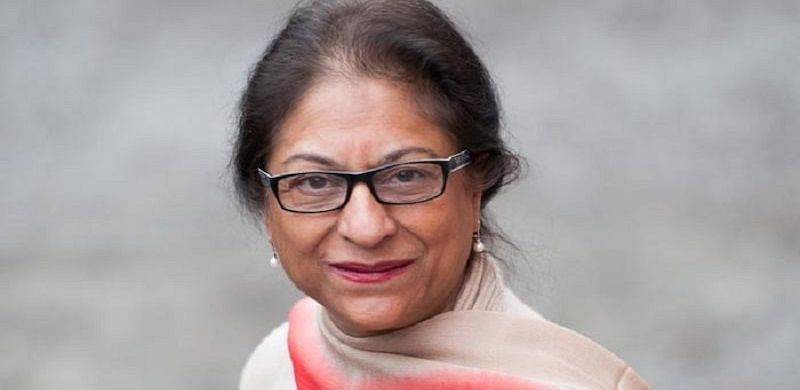
This piece is part of a series recognising the efforts and struggle of Pakistani women who challenged the status quo and paved the way for other women.
Asma Jahangir was Pakistan's strongest human rights defender and lawyer, who led the fight for the rights of women, children and the country's persecuted religious minorities. While she was supported by the progressive quarters who lauded her firm commitment to human rights, she had many detractors who accused her of being anti-Pakistan, anti-Islam and someone who was destroying the country's social fabric. However, she paid no heed to the senseless hatred that she was so often subjected to.
Along with her sister (also a lawyer) Hina Jilani, Asma founded AGHS Legal Aid Cell which was Pakistan's first centre offering legal aid in the country. She was the co-founder of Human Rights Commission of Pakistan (HRCP) which came into being in 1987. Asma remained the Chairperson of the Commission until 2011.
Asma received death threats repeatedly over her activism, mostly from the religious right. She was globally acknowledged for defending the most underprivileged segments. She was also vocal against the misuse of blasphemy laws, a subject not many are willing to speak about, even today.
In 2005, Asma held a non-segregated marathon in Lahore to raise awareness about violence against women, which caused attacks by fanatics. Police appeared to be complicit in the violence against the participants. Asma and many other organisers were arrested, but the marathon continued. The event proved to be a strong act of resistance against the dictatorial rule of then President Pervez Musharraf.
Asma minced no words when she spoke about the overreaches of certain institutions. She was highly critical of the powers-that-be and undemocratic forces that usurped civil rights. Two days before her death in 2018, Asma was present at a sit-in organised by Pashtun activists in Islamabad, against the extrajudicial killing of a Pashtun youth Naqeebullah Mehsud. With Asma's death, Pakistan lost a powerful voice that was needed today more than ever before. Her legacy, however, continues to inspire activists and human rights defenders in the country.
Asma Jahangir was Pakistan's strongest human rights defender and lawyer, who led the fight for the rights of women, children and the country's persecuted religious minorities. While she was supported by the progressive quarters who lauded her firm commitment to human rights, she had many detractors who accused her of being anti-Pakistan, anti-Islam and someone who was destroying the country's social fabric. However, she paid no heed to the senseless hatred that she was so often subjected to.
Along with her sister (also a lawyer) Hina Jilani, Asma founded AGHS Legal Aid Cell which was Pakistan's first centre offering legal aid in the country. She was the co-founder of Human Rights Commission of Pakistan (HRCP) which came into being in 1987. Asma remained the Chairperson of the Commission until 2011.
Asma received death threats repeatedly over her activism, mostly from the religious right. She was globally acknowledged for defending the most underprivileged segments. She was also vocal against the misuse of blasphemy laws, a subject not many are willing to speak about, even today.
In 2005, Asma held a non-segregated marathon in Lahore to raise awareness about violence against women, which caused attacks by fanatics. Police appeared to be complicit in the violence against the participants. Asma and many other organisers were arrested, but the marathon continued. The event proved to be a strong act of resistance against the dictatorial rule of then President Pervez Musharraf.
Asma minced no words when she spoke about the overreaches of certain institutions. She was highly critical of the powers-that-be and undemocratic forces that usurped civil rights. Two days before her death in 2018, Asma was present at a sit-in organised by Pashtun activists in Islamabad, against the extrajudicial killing of a Pashtun youth Naqeebullah Mehsud. With Asma's death, Pakistan lost a powerful voice that was needed today more than ever before. Her legacy, however, continues to inspire activists and human rights defenders in the country.
